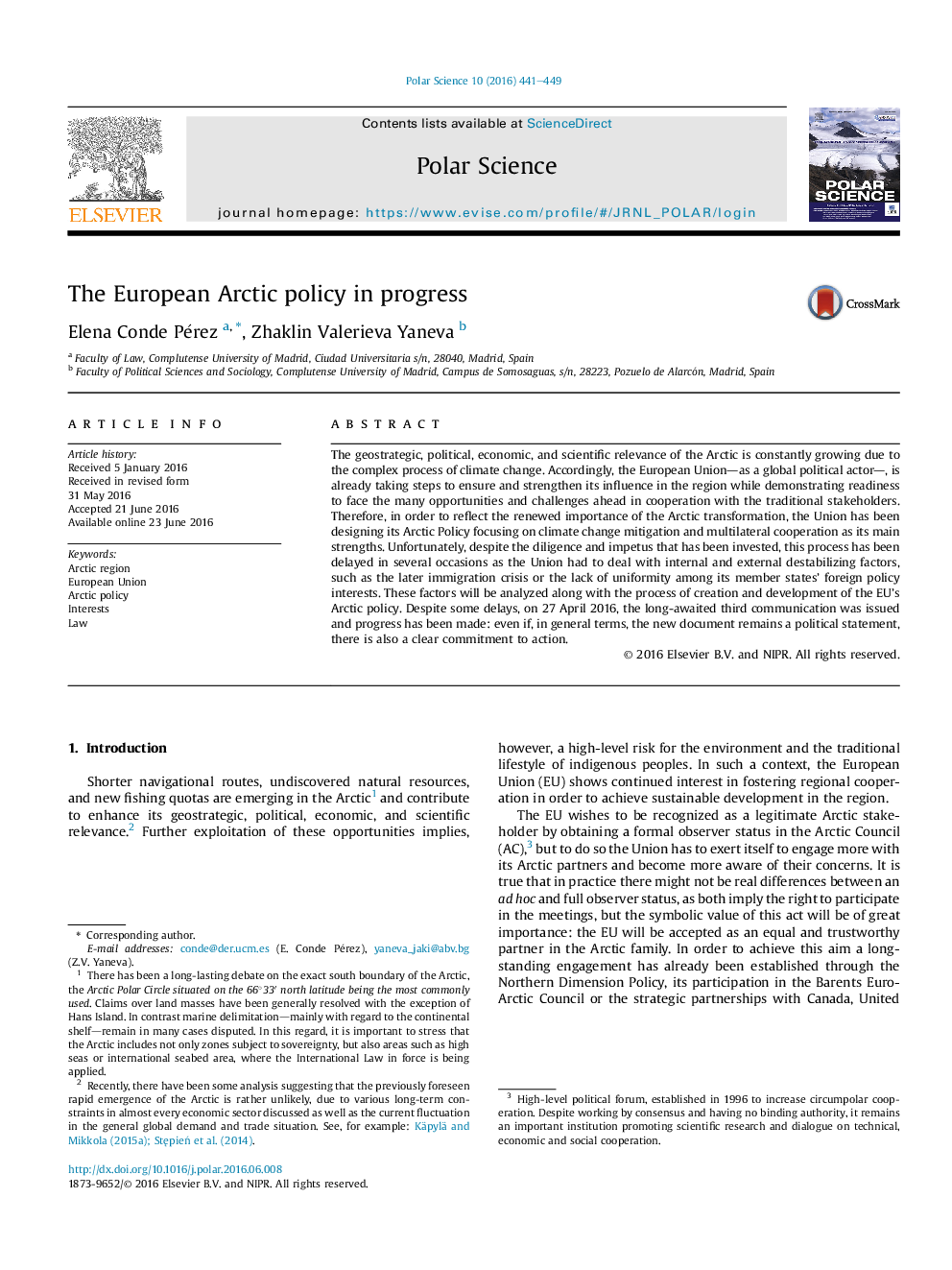| Article ID | Journal | Published Year | Pages | File Type |
|---|---|---|---|---|
| 5780603 | Polar Science | 2016 | 9 Pages |
Abstract
The geostrategic, political, economic, and scientific relevance of the Arctic is constantly growing due to the complex process of climate change. Accordingly, the European Union-as a global political actor-, is already taking steps to ensure and strengthen its influence in the region while demonstrating readiness to face the many opportunities and challenges ahead in cooperation with the traditional stakeholders. Therefore, in order to reflect the renewed importance of the Arctic transformation, the Union has been designing its Arctic Policy focusing on climate change mitigation and multilateral cooperation as its main strengths. Unfortunately, despite the diligence and impetus that has been invested, this process has been delayed in several occasions as the Union had to deal with internal and external destabilizing factors, such as the later immigration crisis or the lack of uniformity among its member states' foreign policy interests. These factors will be analyzed along with the process of creation and development of the EU's Arctic policy. Despite some delays, on 27 April 2016, the long-awaited third communication was issued and progress has been made: even if, in general terms, the new document remains a political statement, there is also a clear commitment to action.
Related Topics
Physical Sciences and Engineering
Earth and Planetary Sciences
Earth and Planetary Sciences (General)
Authors
Elena Conde Pérez, Zhaklin Valerieva Yaneva,
